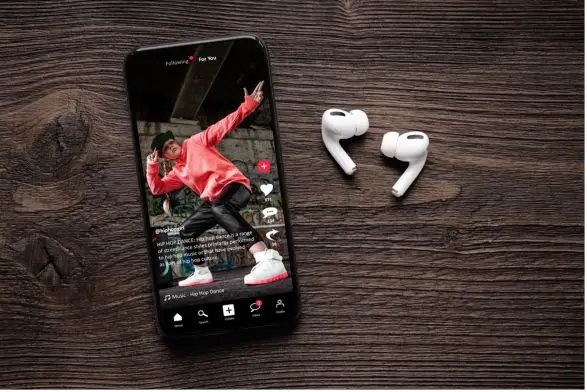TikTok is undeniably fun and incredibly addictive — or else 1 billion users would not be logging in every day to watch and make short videos. Yet, from its launch in the United States, TikTok has been marked as a potentially dangerous app, which might put individual and national security at risk.
Much of the discourse around TikTok centers on its risks regarding national security. Initially developed by a Chinese tech company called ByteDance, much of the data collected by the app could easily make its way into the hands of the Chinese government. Yet, the average TikTok user — who tends to be between 16 and 24 years of age — is unlikely to believe that their personal app use might influence international relationships or result in threats to their current way of life. For the typical TikTok user to change their behavior on the app, or to equip their devices with more advanced security, they need more overt explanations of how their app use might put themselves at risk.
So, does the regular TikTok user have anything to fear from enjoying the app?
TikTok Collects Incredible Amounts of User Data
Simply to access the TikTok app, users must divulge a surprising amount of personal data. Users must submit their names, ages, phone numbers and email addresses. For the sake of convenience, most users provide this info by linking their TikTok with another of their social media accounts, like Facebook. This can give the app access to even more data at sign-up, depending on the personal information users have posted on their other social media accounts. For instance, TikTok might learn where a user lives, their education history, their employment history, their political views, their friend network and more. What’s more, TikTok immediately asks users for access to phone contacts, photos and videos stored on their device, location tracking and other data, which many users unquestioningly agree to provide.
Aside from all this, the vast majority of user information gained by TikTok is amassed through use of the app itself. TikTok can develop highly accurate profiles of individual users based on the videos they interact with. Searching for specific types of content on the app tells TikTok more about a user’s interests and preferences than even their closest loved ones might know.
For the most part, this data is used to shift the algorithm to promote similar types of content and keep users engaged with the app, which drives up the advertising revenues that the app receives. Though this is not inherently evil or intentionally malicious, it can negatively impact users by encouraging the development of obsessive, compulsive and addictive behaviors. Especially in younger users whose brains are still developing, TikTok can alter neurological processes in ways that cannot be undone, potentially leading to lifelong struggles with mental health. Furthermore, much of the data stored on TikTok can be used by cybercriminals to create spear phishing attacks that can lead to devastating identity theft or worse.
TikTok Can Be a Safe Space — With the Right Security Strategy
Many spaces on the internet pose similar threats to users as those found on TikTok. The truth is that it is possible for users to enjoy TikTok without succumbing to the risks listed above — as long as users commit to using TikTok and their devices in ways that facilitate security and privacy. First, users might take advantage of premium security solutions on all connected devices, which will stop malicious attacks and increase the quality of encryption across devices, preventing apps from accessing unnecessary information.

Next, users should consciously alter the way they behave on the app to reduce the amount of information TikTok and other users have access to. Users should set their accounts to private and limit the users who can comment, duet or send messages to friends only. It is a good idea to use one’s device settings to prevent TikTok from continuing to collect data even when a user is not actively using the app, and users should disconnect TikTok from other social media accounts. For those who are incredibly security conscious and using Android devices, it might be wise to open TikTok in a sandboxing app, which isolates TikTok from all other data on the device.
TikTok is not an app like any other. In addition to revolutionizing social media, TikTok has the potential to radically alter user behavior and put not just individual users but entire nations at risk. Though the threats posed by TikTok might not be obvious, users need to be careful with how they interact with the app to keep themselves safe into the future.






![YouTube SEO in 2024 [Definitive Guide]](https://getpixie.com/wp-content/uploads/2024/02/shutterstock_1684828252-1-150x150.jpg)








